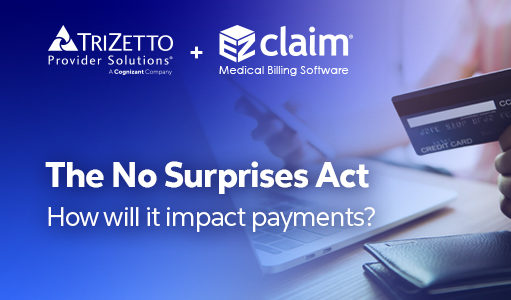While the No Surprises Act aims to address many issues involved in the patient price transparency process, a lot of attention will be put on out-of-networks charges. Many of the provisions will address how patients will be relieved of surprise medical bills from services that were rendered by providers outside of their insurance networks, and providers are wanting to know how to prepare for potential changes in their revenue. We detail how CMS has planned to address out-of-network payment disputes for emergency situations, as well as situations when services were non-emergent.
Emergency Out-of-Network Services
Providers will begin to see differences in reimbursements for emergency out-of-network claims. These will be paid using a ‘Qualified Payment Amount’. Payers are instructed to use different methods to determine the payment amounts, which will vary by the location of the service.
Dispute Resolution
Providers will need to be prepared to review these claims to see that they were paid appropriately or if there is a need to dispute the claim. If a dispute is in order, CMS provides a portal to initiate a dispute. Dispute resolution follows a strict timeline that goes as follows:
- Submit Claim
- After claim submission the health plan has up to 30 days to pay or deny
- Negotiate Payment
- Next, payers and providers have 30 days of claim payment or denial to negotiate
- Initiate Dispute
- Providers then have within 4 days of end of negotiations to initiate a dispute using the CMS Portal
- Select Arbitrator
- If no agreement come from the negotiations, one will be selected by CMS within 3 days
- Submit Dispute
- Within 10 days of arbitrator selection, provider and payers submit documentation and offer for reimbursement
- Arbitrator Decision
- The arbitrator then decides which offer to be paid within 30 days of the dispute
- Final Payment
- And final payment will be made within 30 days of the arbitrator decision
Non-Emergency Out-of-Network Services
The No Surprises Act prescribes that out-of-network patients will receive good faith estimates prior to receiving services at medical facilities. The act covers self-pay and uninsured patients, but may also include patients whose health plan does not cover the services to be provided, as well as patients who have benefits but are opting not to use them. Patients who receive a bill for services that differs from the estimate by more than $400 will have up to 120 days from receiving the bill to dispute the charges. Additional rulemaking will be forthcoming to define how provider and payer systems should interact to provide cost information for the estimate.
Keep abreast with updated regulations and the key points of the No Surprises Act (NSA) that could impact your revenue cycle by visiting TriZetto Provider Solutions’ designated landing page. Subscribe to NSA news updates and explore solutions that equip you to have informed conversations about financial responsibility and eligibility.
ABOUT EZCLAIM:
As a medical billing expert, EZClaim can help the medical practice improve its revenues since it is a medical billing and scheduling software company. EZClaim provides a best-in-class product, with correspondingly exceptional service and support. Combined, EZClaim helps improve medical billing revenues. To learn more, visit EZClaim’s website, email them, or call them today at 877.650.0904.


